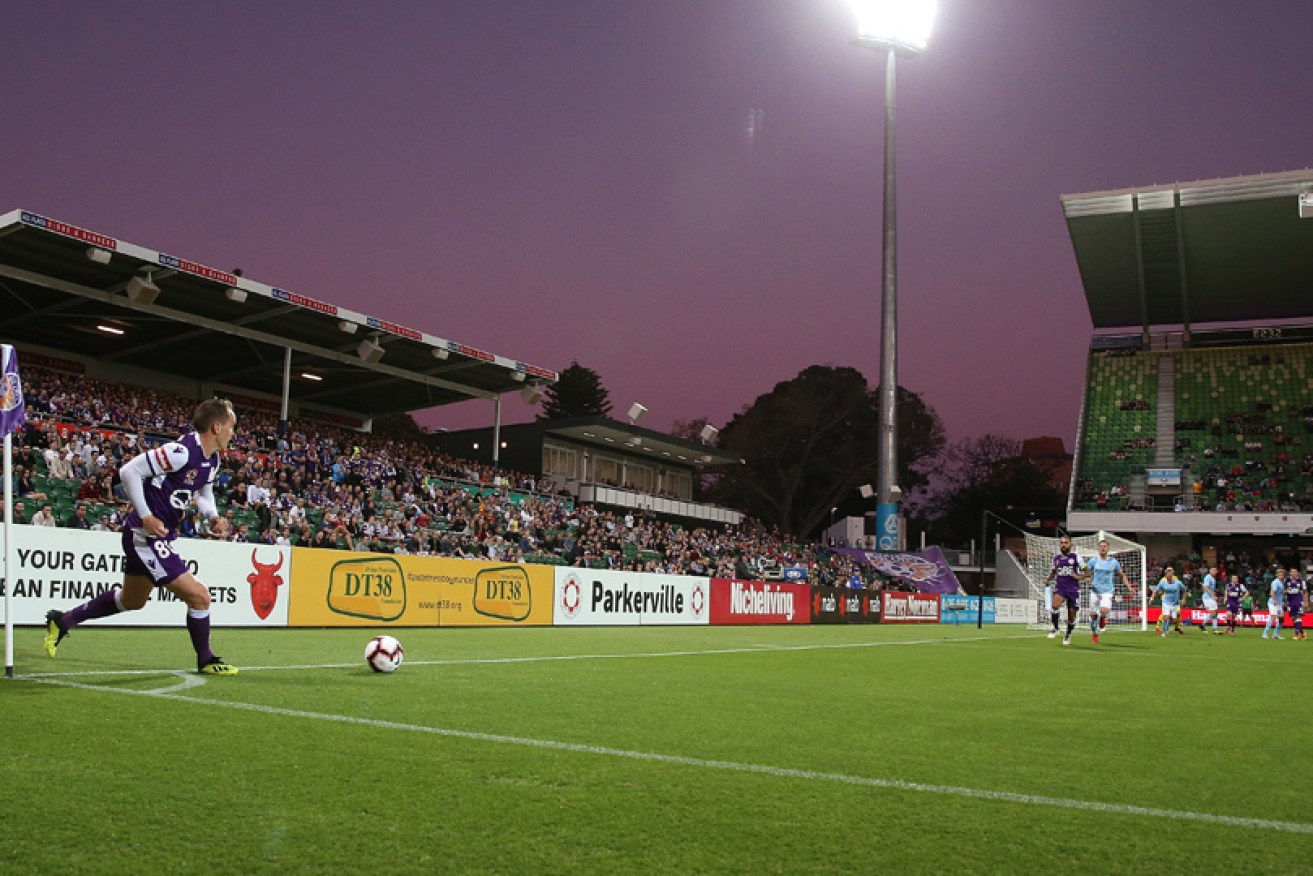D-Day for FFA on A-League expansion plan


The remainder of the A-League season looks set to be completed in a hub located in NSW, Victoria or Queensland. Photos: Getty
It can’t end soon enough – That is the overwhelming sentiment among the six remaining consortiums campaigning to be awarded one of two licences to join the A-League next year.
Across the country, bidding teams from Canberra, two from Sydney (Southern Expansion and Macarthur South West Sydney) and three from Melbourne (Western Melbourne, Team 11 and South Melbourne) will be sweating on a phone call from Football Federation Australia (FFA) on Thursday that will either make or break them.
The newly constituted FFA board met on Wednesday afternoon.
At the top of its agenda was which bids offered the game and the A-League the greatest value in terms of financial stability, fan and community engagement, and commercial growth.
Longer term, the decision could also have implications for the introduction of a professional second-tier competition in which promotion and relegation play their part.
The whole process started a couple of years ago and resulted in 15 groups submitting an expression of interest in May. They included proposals from Fremantle City, West Adelaide, Brisbane City, Ipswich, Gold Coast and Tasmania. That number was cut to 10 in June, before being further reduced to six in October.
The New Daily has spoken to stakeholders across the game, including those in the bidding consortiums and in the corridors of power, to try and gauge which way things will break.
From these conversations, our assessment is that Canberra, Southern Expansion and South Melbourne are set to miss the cut.
The businessman’s pitch
Since the South West and Macarthur bids joined forces in August, they’ve mounted a concerted campaign backed by property developer Lang Walker’s Walker Corp.
We're now one voice, one community, one region. Story here https://t.co/zXNs0kXMnV #ALeague #expansion pic.twitter.com/q82kwrivlA
— Macarthur FC (@mfcbulls) August 20, 2018
Mr Walker is used to getting his way, and it doesn’t look any different on the field.
The situation in Melbourne is intriguing.
Western Melbourne is presenting a bid built on an independently financed sporting precinct in Melbourne’s western suburbs that requires no public money for the construction of a stand-alone, purpose-built football stadium.
Its critics question whether there’s an audience within Western Melbourne’s existing communities that offers growth to sustain a fanbase.
Western Melbourne is unfazed. Its mantra is: ‘Build it right and they will come’.
The all-or-nothing bid
Team 11’s bid – set in Melbourne’s sprawling south-east around Dandenong – been seen by many as a preferred option given the huge number of new-arrival communities and lack of facilities in the area.
Dandenong resident and businessman Gerry Ryan’s consortium have asked the Victorian state government to stump up the $150 million to fund a new stadium.
The feeling in government circles is that while there is support for the idea of a team in Melbourne’s south-east, simply writing a cheque is not an option.
Team 11 still needs to work on sourcing commercial partners, outlining extended costings on an upgrade of facilities at Casey Fields while a stadium build is in progress among a range of other benchmarks it must meet before government coffers become available.
In short, Team 11’s all-or-nothing option has backfired. Without government money up front, it’s suddenly a long way off the pace.
FFA may have been hoping the state government would make the hard call for them on one of the remaining bids by splashing the cash.
The Andrews government clearly won’t be wedged.
Our bid team member and @WyndhamCouncil Project Lead @Kate_Roffey spoke at #MIS2018 about our vision of a privately owned @ALeague & @WLeague Football Stadium and how it can revolutionise the sport, match day experience & fan engagement. #WesternMelbourne pic.twitter.com/8n2Me7yf7h
— Western Melbourne Group (@WesternMelbGrp) November 30, 2018
A decision for the future
This is a momentous decision that will change the dynamic of the Australian game.
Fears that FFA will prioritise self-interest above the game’s greater good are growing among some bid teams, with one telling The New Daily the FFA is set to ignore all its metrics and economic modelling to accommodate political concerns in awarding the licences.
Given what’s at stake, no one was keen to go on the record, such is the sensitivity and paranoia surrounding the process.
What is evident from those conversations is the bid teams have been exhausted by the arduous campaign that has been variously described as “ad hoc” and a “shambles” by a number of participants.
In March, amid the ongoing wrangling over the structure of the FFA congress (that elects the board), the threat of a FIFA takeover of the game and calls for chairman Steven Lowy to step aside, the FFA called for expressions of interests from bidders for two new A-League licences.
While most experts believe an expanded A-League is essential for the game to flourish in Australia, the timing of the process among the uncertainty and chaos surrounding the administration of the sport was odd.

Football Federation of Australia CEO David Gallop. Photo: Gett
The one thing a process such as this requires is certainty. The one thing that is certain is there has been none throughout the entire ordeal.
Originally the FFA had slated October 31 as D-Day for a decision.
That deadline was pushed back as the transition to a new board and chairman (Chris Nikou replacing Lowy) left the remaining bid teams hanging.
Even Thursday’s press conference scheduled by the FFA could still see HQ opt to delay the decision until after Christmas.
That would be the easy option – and the wrong one.
It’s time FFA shows some intestinal fortitude and sets a pathway forward for all concerned.
If it is Macarthur South West and Western Melbourne that get the nod, there is the option of a graduated entry, with one team joining next season and the other in 2020-21.
Whichever way FFA goes, it will have a massive diplomatic challenge to ensure the losing bidding teams are not lost to the game.
So much time, money, energy and emotion have been demanded of people who are deeply ingrained in the sport and have football’s best interests at heart.
To gain two new clubs but lose a huge part of the football family as a consequence of this process would be an own goal that the game may not recover from.








